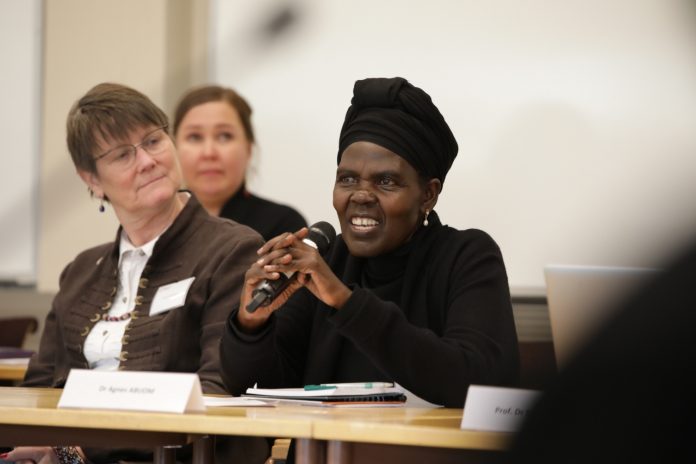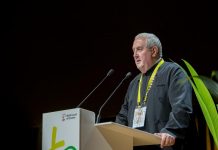As a meeting of the World Council of Churches (WCC) Commission on World Mission and Evangelism convened in Helsinki, Finland on 16-22 May, leaders reflected on the way forward for the ecumenical movement after the commission’s Arusha conference in March.
In opening remarks, Dr Agnes Aboum, moderator of the WCC Central Committee, reflected on what she described on as “landmark” conference in Arusha, which drew together more than 1,000 people and resulted in an Arusha Call to Discipleship.
“There are themes in the Arusha conference that provide linkages with the Pilgrimage of Justice and Peace: discourses around the regions, countries and churches,” said Abuom. “Despite the intersection with the Pilgrimage of Justice and Peace, perspectives and approaches may differ.”
In Arusha, those gathered celebrated life and encountered the wounds that past mission endeavors have left in communities, Abuom noted. “Arusha reminded us that mission and evangelism is a journey we take as we meet with communities and individuals and the need to be sensitive to prevailing cultures,” she said. “The Arusha conference raised and affirmed the centrality of the concept of life and human dignity that are rooted in an understanding of spirituality; a type of inspiring, energizing and empowering spirituality that enables and gives strength to people to continue and move forward in their struggles for justice and peace as they encounter oppression, violence and even death.”
This spirituality is manifested both inwardly and outwardly, she continued. “Indeed mission and evangelism proclaims and brings good news in situations of dire poverty, injustice and suffering and the question is how to keep the candle of hope burning,” she said. “Has the Pilgrimage of Justice and Peace focused perhaps heavily on the peace component and not much on justice?”
The Arusha conference was a major pilgrimage stop, Abuom concluded. “As a matter of fact, both Arusha and the Pilgrimage of Justice and Peace are in tune with the 2030 global agenda that aims at enhancing life and leaving no behind, in other words, working to ascertain an inclusive global community,” she said. “The challenge however, is to discern approaches and strategies for effectively addressing the forces of death, those evil powers that are opposed to a culture of wholesome life for all.”
More spaces need to be created in order to discuss areas of intersection between the Arusha conference and the Pilgrimage of Justice and Peace, Abuom concluded. “Matters of mission and evangelism are essential and integral to the mandate and life of the church,” she said. “We stand at a historical juncture in the ecumenical movement that more than ever requires us to articulate the linkages between faith and order on the one hand, and mission and evangelism, including justice and peace, on the other.”
Preserving a true faith
In an opening sermon, Metropolitan Dr. Geevarghese Mor Coorilos, moderator of the WCC Commission on World Mission and Evangelism, reflected on how people of a faith are, in the Bible and throughout history, entrusted with preserving a true faith. “It is a specific exhortation to ensure the purity of faith, to make sure that the faith was not corrupted by heresies and wrong teachings,” he said. “As we look into and beyond the Arusha conference, may we also consider the Arusha call as a ‘deposit of faith’ and commit ourselves to not only preserve it as a creed but to popularize it, proclaim it and live it out.”
WCC, oikoumene.org















